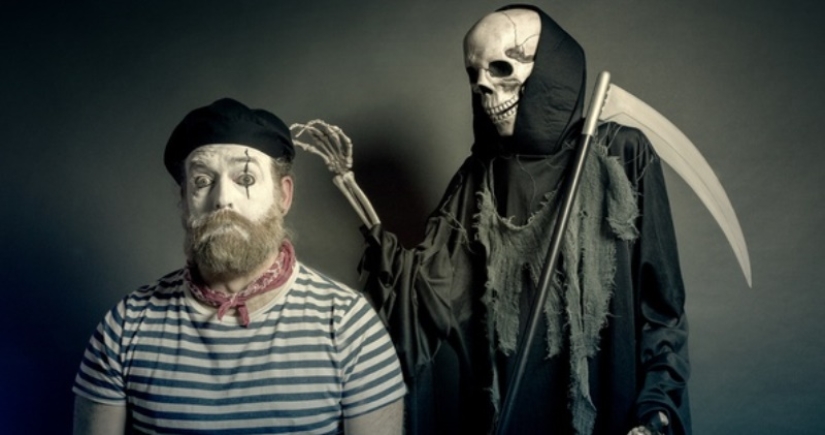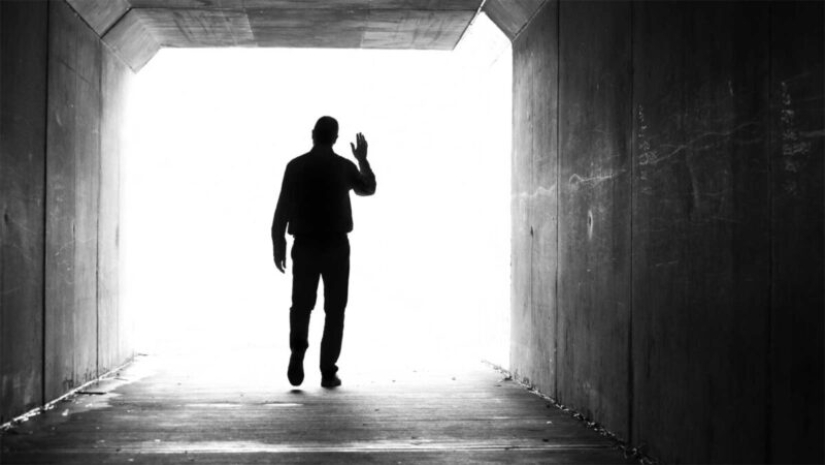Dead of his own volition: scientists have described the phenomenon of death due to the loss of the will to live
Categories: Health and Medicine | Science
By Pictolic https://pictolic.com/article/dead-of-his-own-volition-scientists-have-described-the-phenomenon-of-death-due-to-the-loss-of-the-will-to-live.htmlEveryone knows such an expression as "died of boredom", which was especially loved by romantic writers of the 19th century. Many people are also aware of cases when a person died because of a curse imposed on him. Such cases could not be given a rational explanation for a long time, so they were not too believed in. But not so long ago, scientists solved this phenomenon, which they called "psychogenic death". It turns out that a physically healthy person can simply die, giving up life.

Psychogenic death is a terrible, not yet fully understood human condition. It is not related to suicide and has nothing to do with depression and other mental disorders. It can be described as death at will or a person's refusal to live. This is not a figurative expression or a horror story – unfortunately, science knows many such cases.

Everything happens quite quickly, from 2-3 days to several weeks, and the departure from the life of a person who recently did not complain about his health and did not get sick, shocks others. John Leach, MD, who investigated this phenomenon in 2018, wrote the following about it:

The scientist found that psychogenic death is most often the result of a severe trauma experienced by a person and changed his life. After studying many stories related to unexplained deaths, Dr. Leach identified five stages of this dangerous condition:
This is followed by psychogenic death, which Leach also calls "the complete disintegration of a person". The scientist claims that at the final stage, nothing can force a person to live on. He suggests that the fault is a malfunction in the anterior cingulate gyrus of the brain due to a serious injury. This part of the brain is very important, because it supports purposeful behavior and is responsible for motivating a person.

But not always physical injuries can be blamed for psychogenic death. Science knows thousands of cases when people died because of a curse, witchcraft, the evil eye or even a simple wish for death. It was thanks to such inexplicable cases that Walter Cannon, a doctor of psychology from Harvard University, took up the phenomenon in 1942.
Cannon argued that psychogenic death is associated with a person's fear of supernatural forces, the action of which goes beyond the generally accepted rules and known laws of nature. The psychologist wrote that the death of a person that occurred a few days after the curse imposed by a shaman is the most typical case of a person's voluntary refusal of life.

A psychologist from Harvard believed that the curse causes a kind of system failure – a person can not decide on the classical reaction of the body to danger-hit or run, which eventually leads to death. It must be said at once that Cannon's theory was harshly criticized and it did not have so many supporters at the time. Until now, psychogenic death is not recognized by many scientists, and some people consider researchers of the phenomenon to be charlatans.
It is too early to put an end to the issue of psychogenic death, and science has a lot to do in order to dissect this phenomenon, discover its mechanisms and learn how to resist it. But what if you need to help a person who is going through four stages that portend voluntary death?

Dr. John Leach is sure that he can be helped at any of the four stages of "human decay". Oddly enough ,but the "medicines" are very simple – it is physical activity and restoring a person's sense of control over his life, creating motivation. In no case should you leave him alone with his thoughts – physical activity, care, positive mood and communication can save such a patient's life.
It is quite possible that psychogenic death overtook the great classic N. V. Gogol. The cause of death of the writer, who faded away in a few days, is still unknown.
Keywords: Death | Science | Health and medicine | Life | Trauma | Witchcraft | Psychology | Curse
Post News ArticleRecent articles

Do you like to cook, buy food for the future, but the short life of vegetables and fruits does not give you peace of mind? There is ...

Ideally, veganism involves not only the rejection of eating animal products. It is a way of life where there are products which ...
Related articles

That Red Bull gives wings thanks to advertising everyone knows today. What inspires people earlier, before the advent of this ...

Man is accustomed to consider himself the most intelligent being on Earth. Despite his very weak physical abilities, he manages the ...

In 2019, a resident of the United Arab Emirates, Munira Abdullah, regained consciousness in a private clinic in Germany after 27 ...

Charlie Chaplin is known throughout the world; his career as a silent film actor lasted 75 years, ending with his death. Chaplin ...